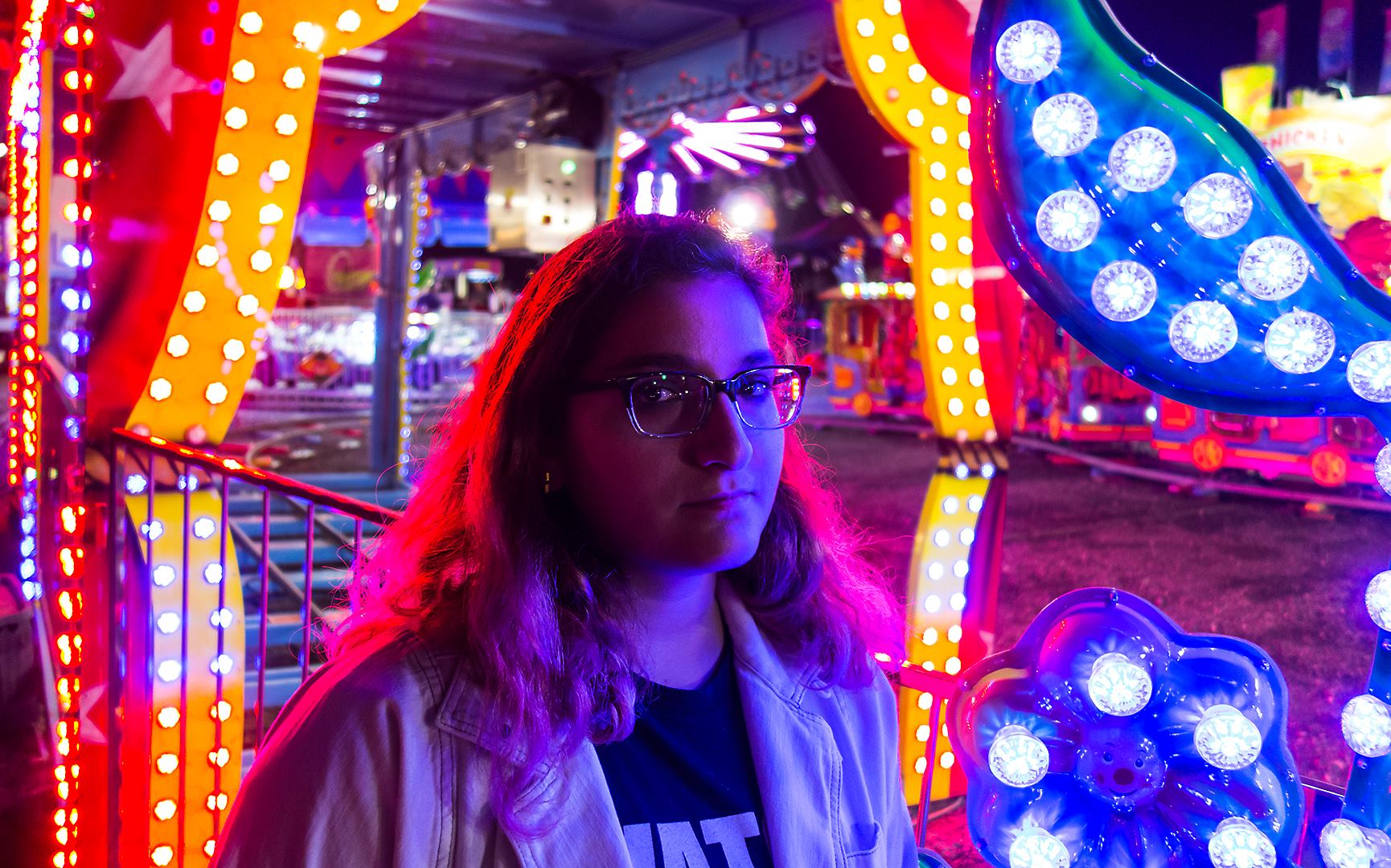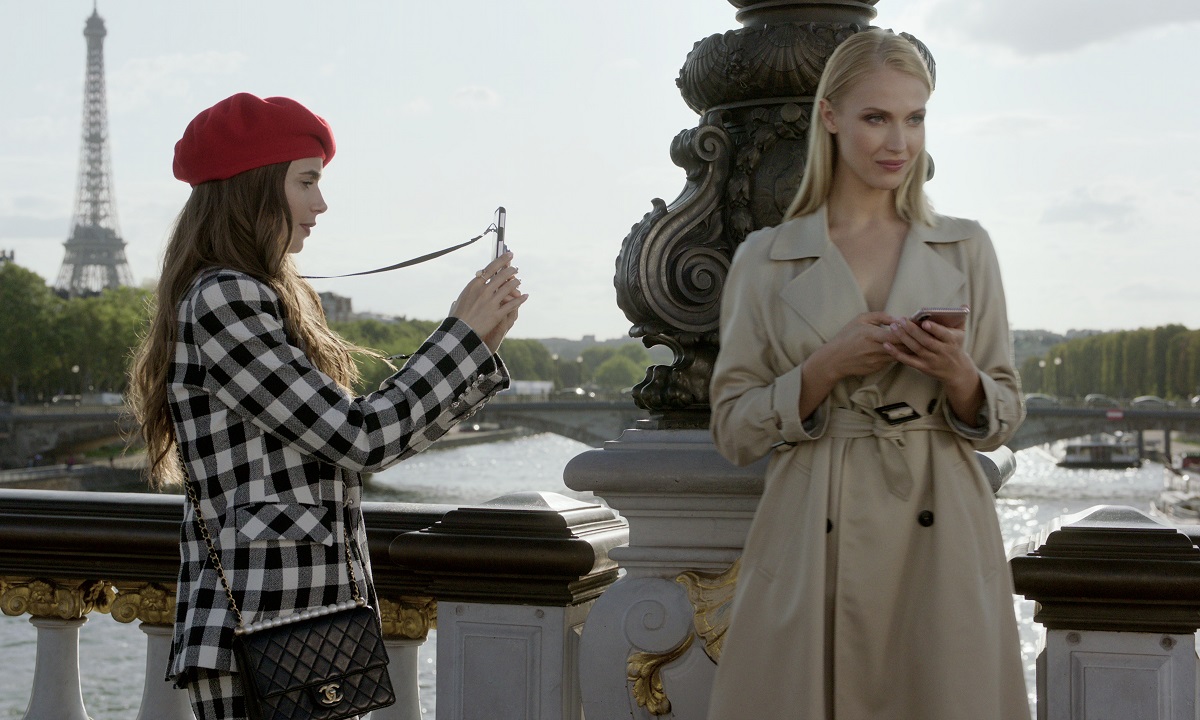Darren Star’s TV shows have long been dismissed as frothy confections interchangeably obsessed with wealth and sex, but they’ve never been boring. With their perpetual angst and recurring bed hopping, “Beverly Hills, 90210” and “Melrose Place” pushed back against the conservatism of primetime TV. “Sex and the City” not only revived HBO and introduced new generations to Manolo Blahnik shoes, but also brought questions about women’s sexual desire to the pop-culture forefront. And “Younger” has been a surprise hit for TV Land, morphing into a cult favorite that amusingly tackles questions of ageism and sexism.
None of the same praise can be leveled toward Star’s newest effort, “Emily in Paris.” All of the criticisms that have previously been leveled at Star are actually valid when it comes to the Netflix series, which is so devoid of narrative tension that it barely qualifies as entertainment. The show doesn’t seem to have an understanding of the social media or marketing industries on which it is focused; it mistakes having a closet full of designer clothes as possessing a personality; and it relies so much on farcical national stereotypes that it might bring back traumatizing flashbacks of Carrie, Miranda, Samantha, and Charlotte’s trip to Abu Dhabi in the loathsome “Sex and the City 2.” Lily Collins does her best at playing a Midwestern girl swept up in the glamour of Parisian living, but the show overall is irredeemably inauthentic and aggravatingly superficial.

From its very first scene, “Emily in Paris” introduces its protagonist, Emily Cooper (Collins), as a striver and a go-getter. On a cold Chicago morning, Emily runs five miles in 41 minutes, a pleased smile spreading over her face when her exercise app informs her that she shaved 18 seconds off her previous personal best. Emily is used to success: She’s a rising star at the Gilbert Group marketing firm, having made her name on pharmaceutical and geriatric care products, and she’s in a committed relationship. But when her boss is forced to back out of a one-year work assignment in Paris with a smaller luxury marketing company, Savoir, that the Gilbert Group just acquired, the responsibility falls to Emily.
Emily sees the opportunity as an adventure, a chance to live in a beautiful place and further her career. There are just a few issues: She doesn’t speak French, and she doesn’t have any experience marketing the wares in Savoir’s portfolio, like couture fashion or fragrance. But no matter! Emily is sassy, and she says the words “content” and “engagement” a lot, and she has what the show insists are great ideas. Despite the French haters, Emily will make it work.
That broad generalization is about the level of detail that Star puts into characterizing the professional challenges that Emily encounters in her new position. The focus of “Emily in Paris” more often becomes how mean the French people are to Emily, from her cranky landlady to her boss, Sylvie (Philippine Leroy-Beaulieu), who is offended by everything about the American now in their office. Emily’s experience was in marketing IBS medication, Sylvia smirks, so how could she understand what the French people want in, say, lingerie? But expecting any “Mad Men”-style scenes explaining how Emily comes up with any of her immediately magical ideas is a fool’s errand, because “Emily in Paris” instead relies over and over again on how Emily’s winning American pluck helps her overcome any problem.
There is nothing more to Emily than the fantastic outfits (imagined by “Sex and the City” costume designer Patricia Field) that somehow fit in her cramped apartment with what is described as only one drawer. She is a social media savant who somehow accrues thousands of Instagram followers with eye-rollingly captions like “Drinking champagne in Champagne,” and who claims to know the American consumer without any data or statistics to back that up. At least “Sex and the City” showed us Carrie writing, shopping, dating, and doing things in life that informed her work and her point of view. Whether you liked Ms. Bradshaw or not, you understood her, the tenors of her friendships, and how the kind of person she imagined herself as sometimes contrasted with how she actually acted. There is none of that depth in “Emily in Paris,” which is only interested in its titular character in terms of what she wears and who she kisses. And even then, it all falls flat—the love triangles, the workplace rivalries—because there’s no passion to anything Emily does. Collins is always ready with a broad smile and a peppy delivery, and she gamely plays along with how often Star writes in genitalia-related humor (a whole episode centered around the French word coq!), but Emily never feels like a real person.

Perhaps all of this would be excusable, or even tolerable, if “Emily in Paris” treated its main character with any skepticism at all. To the show’s credit, it briefly engages with this idea when Emily meets a client who calls her a “basic bitch” for decorating her purse with a keychain shaped like the Eiffel Tower. For a moment, it feels like the show’s incongruous details about Emily—that she grew up in the Midwest, but doesn’t know how to clean a cast-iron pan; that she’s been taking months of French classes, but doesn’t know that an aubergine is an eggplant; that she loves eating Parisian cuisine, but doesn’t know that the dessert crème brulee has a crisp top of burnt sugar—are hints that she isn’t as sophisticated as she would like to believe, and that she has in fact been performing a version of herself. But “Emily in Paris” veers away from that more subversive consideration of its protagonist by giving her an impassioned monologue about how “basic bitches” are the backbone of the fashion industry; the designer to whom she is delivering her lecture comes around, of course, and the two bond over the show “Gossip Girl.”
That setup—Emily correcting the French by proclaiming how great Americans really are—is one “Emily in Paris” returns to often, much like how Star had Carrie quit Paris in the final season of “Sex and the City.” The tactic is never as cute as the show thinks it is. And “Emily in Paris” is so certain of Emily’s perfection that there is no real impact when she makes a mistake, like pursuing a friend’s boyfriend, flirting with a client, or potentially ruining Paris Fashion Week. Problems are wrapped up within each episode’s 30-minute run time and previous subplots rarely carry over, which is particularly strange when the show attempts to tackle the #MeToo movement and the French perspective. Emily becomes the voice of harassed women, making a grand speech with a number of buzzwords about female strength and the male gaze. But that perspective comes out nowhere; before that point, we had no idea what Emily thought about feminism. And the subject never comes up again, although it would have been thought-provoking for the show to consider whether Emily’s ideology complicates the work she does with luxury brands that so often rely on traditional standards of female beauty to sell their products. “Emily in Paris” drops the conversation before it gets interesting.
Perhaps the only way to enjoy “Emily in Paris” is to watch it with the knowledge that the characters surrounding Emily are more intriguing than she is, like Mindy Chen (Ashley Park), the Chinese heiress-turned-reality-show-contestant-turned-nanny who befriends Emily and serves as her Samantha, or Emily’s boss, Sylvie, who has achieved so much success in a field dominated mostly by men, and who is understandably annoyed by Emily’s prying into her personal life. Leroy-Beaulieu’s performance is particularly strong, and Sylvie’s cynicism serves as a refreshing contrast to Emily’s relentless positivity. Also solid is the show’s direction, which is crisp and effective, although overly reliant on pop songs for scene transitions. Technically, “Emily in Paris” is well-made, but the show’s shortcomings—from its simplistic depiction of French culture to its paper-thin protagonist—make it more of an irritation than an indulgence.
Full season screened for review.












